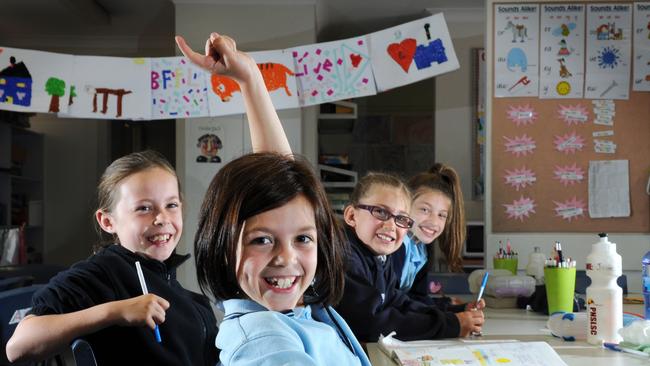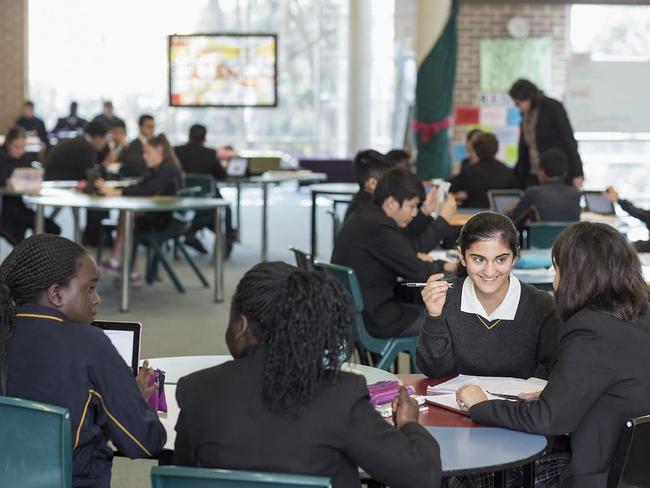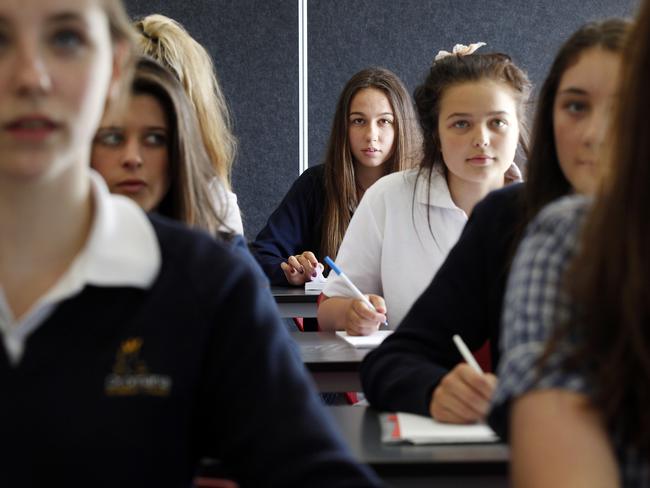Are single-sex schools better than co-ed schools?
SINGLE-sex versus co-ed can be a polarising topic when choosing the right school for your child. Here’s what the research shows.

Central Sydney
Don't miss out on the headlines from Central Sydney. Followed categories will be added to My News.
- The school question you MUST ask
- Why testing kindies doesn’t work
- How to help your child’s move from primary to high school
- Why parent teacher interviews don’t really work
Here’s one school topic bound to create debate at the dinner table - single-sex versus coeducational schooling.
When it comes to school choice, we are a lucky country and despite an increasing trend towards coeducational education, many parents continue to opt for single-sex schooling for their son or daughter. This is based on what I would call the 3Ps: personal experience, preference or perception.
Arguments around single-sex schooling can be highly emotive. However, perception is not always the reality. To put it simply, there are good single-sex schools but there are also some pretty poor ones. The same applies to coeducational schools.
Whenever I am asked by parents if single-sex schools produce better educational outcomes than coeducational schools, the answer is no they don’t.

While many parents cite reasons such as wanting their child to focus on learning free of distractions from the opposite sex or wanting their son or daughter to fully appreciate subjects rather than focus on traditional gendered pathways (e.g. economics for boys and home economics for girls), there is no evidence that one type of schooling delivers better learning outcomes than the other. How students are taught has a greater impact on their learning than where they are taught.
What we do know is that all schools need to adopt a different approach to learning and teaching that is responsive to individual students in the context of today’s world.

Gender, like class sizes, becomes a structural or administrative solution to addressing the bigger issue of how teachers personalise learning .
The best learning environments for young people are the ones that respond to their social, emotional and learning needs, that allow for diverse opinions, encourage healthy and positive relationships and ultimately reflect the diversity of the communities in which they live.


